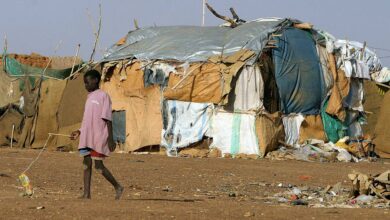Death toll climbs to 72 in South Africa riots

By Nerea Gonzalez
Johannesburg, Jul 13 (EFE).- The death toll from a wave of riots initially triggered by the recent imprisonment of former President Jacob Zuma rose to 72 on Tuesday in South Africa, where army soldiers have been deployed to help police stabilize the affected areas.
The violent flare-ups have been concentrated in two regions: Zuma’s eastern home province of KwaZulu-Natal and Gauteng province, which is home to Johannesburg and Pretoria and is the political and economic center of Africa’s most developed nation.
Over the past few days, mobs of people have looted and set fire to shopping malls and stores, burned vehicles and blocked roads and highways.
Protests initially triggered by the 15-month prison term handed down to Zuma on June 29 for contempt of court degenerated into a wave of looting and indiscriminate vandalism that President Cyril Ramaphosa compared to the convulsive transitional period from apartheid to democracy in the early 1990s.
“The path of violence, of looting and anarchy, leads only to more violence and devastation. It leads to more poverty, more unemployment, and more loss of innocent life,” the head of state lamented Monday night in an address to the nation.
As of 9 pm Tuesday, the death toll had risen to 72, with 45 deaths in Gauteng and 27 in KwaZulu-Natal, according to the latest figures from the South African Police Service, which also confirmed that 1,234 people have been detained.
The toll includes 10 people who were trampled to death when police and the military were trying to stop looting at a shopping center in Soweto.
The situation on Tuesday remained chaotic in many places despite the deployment of 2,500 soldiers to support the police, who had been completely overwhelmed by the rioters.
“As we speak now the looting is continuing. I can’t say that the situation is under control as long as there is looting,” Gauteng Premier David Makhura told reporters after midday on Tuesday.
In a press conference Tuesday morning, South African Police Minister Bheki Cele stressed that “no amount of unhappiness or personal circumstances from our people gives the right to anyone to loot, vandalize and do as they please and break the law.”
Cele, who in recent days has faced sharp criticism for security forces’ inability to halt the wave of vandalism, also told communities affected by those actions not to take the law into their own hands.
The disturbances initially erupted when Zuma was taken into custody last Thursday to begin serving his prison sentence for refusal to testify in an inquiry centered on corruption during his 2009-2018 rule.
But riots over the weekend were less politically motivated and triggered instead by pre-existing social problems, including extreme inequality, high crime levels in the country and displeasure with the government’s Covid-19 response.
Ramaphosa has warned that the chaos will have an impact on food security and the health situation in South Africa, provoke an economic reverse and slow down the vaccination drive at a time when the country is struggling to recover from the coronavirus crisis.
In fact, the Health Ministry confirmed Friday that there have been interruptions to the Covid-19 vaccine rollout in the riot-hit areas and that people have had difficulty accessing other basic medical services and medications for diabetes, HIV-AIDS and tuberculosis.
The bloody riots come as the country is facing a devastating third wave of coronavirus infections.
South Africa has been the hardest hit on the continent by the pandemic, with 2.2 million infections and some 64,000 deaths. EFE
ngp/mc





